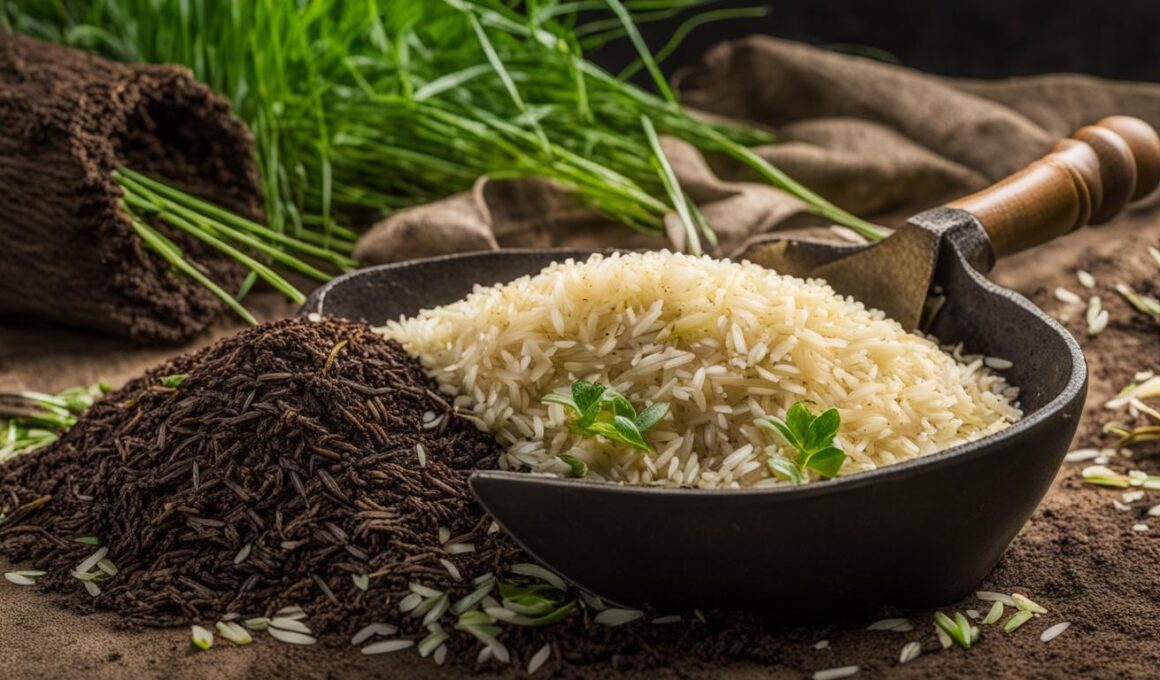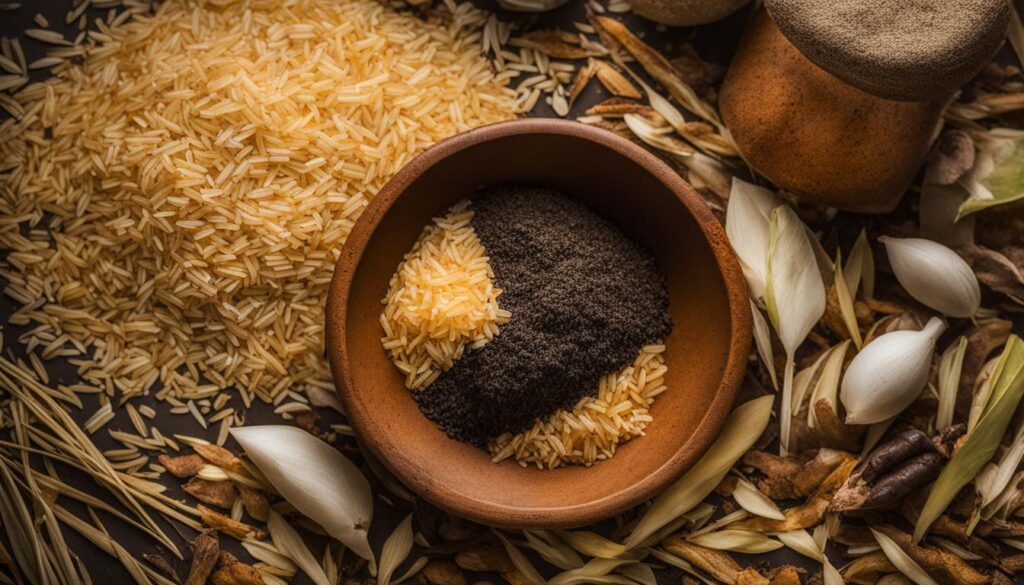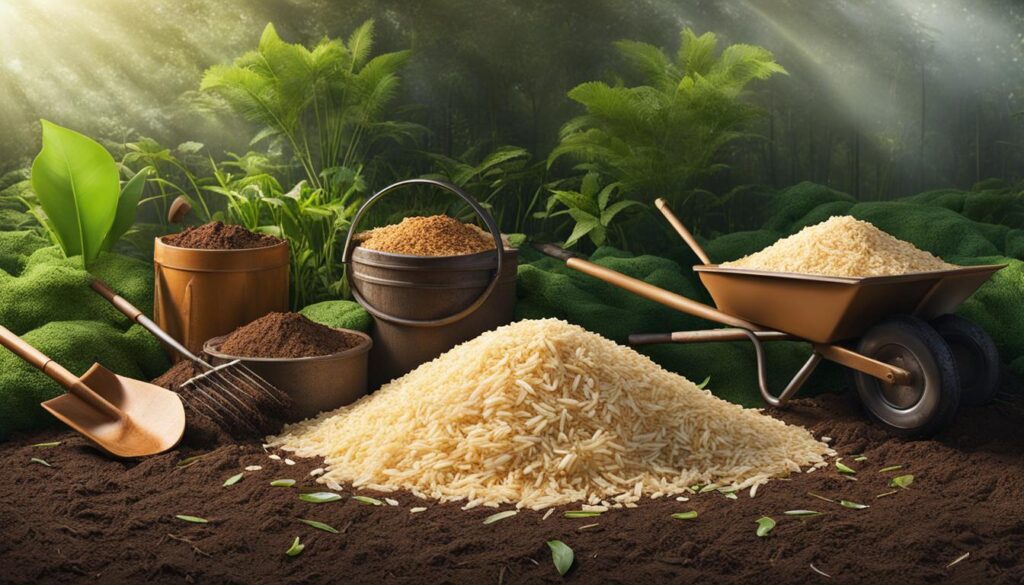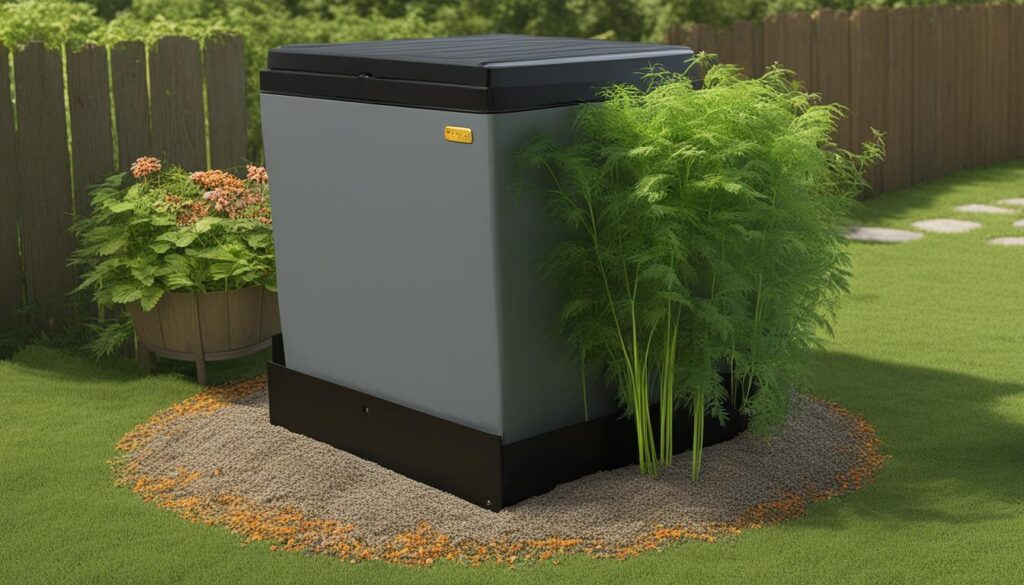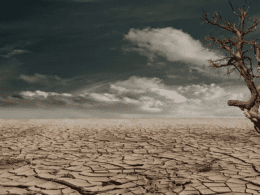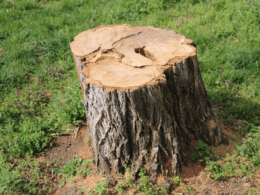Composting rice is a common practice for many eco-conscious individuals looking to reduce food waste and create nutrient-rich soil. Whether you have cooked or uncooked rice, it is possible to compost it effectively. However, there are a few things to keep in mind to ensure successful composting without attracting pests or harmful bacteria.
If you’re wondering whether you can compost rice, the answer is yes! By following proper composting techniques, you can turn your leftover rice into valuable organic matter for your garden. In this article, we will explore the dos and don’ts of composting rice and provide you with practical tips for successful rice composting at home.
Post Summary
- Composting rice is possible, both cooked and uncooked.
- Proper composting techniques help avoid pests and harmful bacteria.
- Add rice gradually in small amounts to prevent issues.
- Avoid adding too much rice at once to maintain proper decomposition and airflow.
- Consider alternative composting methods like vermicomposting or using an electric kitchen composter.
Is Rice Compostable?
Rice is indeed compostable, but it’s important to understand the proper conditions for its breakdown in the composting process. Both cooked and uncooked rice will decompose in a compost pile, but it should be added gradually and in small amounts to avoid attracting pests and harmful bacteria.
Adding too much rice at once can create an ideal environment for rodents and pests, as well as unwanted bacteria. This can result in unpleasant odors and potential plant disease in the compost pile. To prevent these issues, it’s crucial to ensure that rice is properly broken down before adding it to the compost.
Proper composting dos and don’ts for rice include monitoring the amount added, maintaining a good balance of carbon-based materials and nitrogen-rich materials, and ensuring proper decomposition. By following these guidelines, you can successfully compost rice and contribute to nutrient-rich soil for your plants.
| Composting Dos | Composting Don’ts |
|---|---|
|
|
Composting Rice at Home in 6 Easy Ways
Composting rice at home is an excellent way to reduce food waste and create nutrient-rich compost for your garden. There are several easy methods you can use to compost rice effectively. Here are six simple ways to get started:
Vermicomposting:
Vermicomposting is a method of composting that uses worms to break down organic waste, including rice. Create a worm bin using a container with air holes and add a bedding material like shredded newspaper or coconut coir. Place your worms in the bin along with small amounts of rice. The worms will consume the rice and turn it into nutrient-rich worm castings.
Lomi Electric Kitchen Composter:
The Lomi electric kitchen composter is a convenient and compact composter specifically designed for household use. It uses heat, moisture, and bacteria to break down food waste, including cooked rice, into a fine compost called Lomi dirt. Simply add your rice to the Lomi composter, and it will do the rest of the work for you.
Hot Compost Pile:
If you have a large amount of rice to compost, consider creating a hot compost pile. Layer rice with other organic materials like leaves, grass clippings, and vegetable scraps. The high temperatures generated in a hot compost pile will break down the rice quickly, resulting in nutrient-rich compost.
Closed Compost Bin:
A closed compost bin is a great option if you want to compost rice without attracting pests or rodents. Place your rice in a closed compost bin and mix it with other compostable materials like fruit and vegetable scraps, coffee grounds, and dry leaves. The closed bin helps control odors and keeps pests out while the rice breaks down.
Bokashi Bin:
A Bokashi bin is a system that uses fermentation to break down organic waste, including rice. Add layers of rice and Bokashi bran to the bin, and the bran will ferment the rice, turning it into a pre-compost material. Once the Bokashi fermentation process is complete, bury the rice in a garden bed or add it to a traditional compost pile to complete the breakdown process.
Municipal Compost System:
If you don’t have the space or resources to compost rice at home, check if your local municipality offers a composting program. Many cities have municipal compost systems where you can drop off your rice and other organic waste to be processed into compost on a larger scale.
| Composting Method | Benefits | Considerations |
|---|---|---|
| Vermicomposting | – Easy and convenient – Produces nutrient-rich worm castings |
– Requires a worm bin setup – Worms need proper care and maintenance |
| Lomi Electric Kitchen Composter | – Convenient and compact – Quick breakdown of cooked rice – Produces Lomi dirt, a fine compost |
– Requires electricity – May have limited capacity |
| Hot Compost Pile | – Fast breakdown of rice – Generates high temperatures to kill pathogens |
– Requires a larger space – Regular turning and monitoring of pile |
| Closed Compost Bin | – Controls odors – Keeps pests out – Easy to manage |
– Takes longer for rice to break down |
| Bokashi Bin | – Ferments rice quickly – Can be used in small spaces |
– Requires Bokashi bran – Two-step process to complete composting |
| Municipal Compost System | – No need for personal composting setup – Large-scale composting |
– Availability may vary by location |
5 Mistakes to Avoid When Composting Rice
Composting rice is a great way to reduce food waste and create nutrient-rich soil for your plants. However, there are certain mistakes that you should avoid to ensure successful composting. Here are five common mistakes to watch out for:
- Adding too much rice to the pile: While rice can be composted, adding large quantities all at once can hinder the decomposition process and impede airflow. To avoid this, add rice gradually in small amounts, allowing it to break down properly.
- Composting rice with added fats: Rice that has been cooked with added fats like butter or oils can attract pests and create unpleasant odors in your compost pile. It’s best to compost plain rice without any additional fats.
- Not rotating the compost pile: Rotating or turning your compost pile regularly is essential for proper decomposition. If you neglect to turn the pile, the rice and other organic materials may not break down efficiently, resulting in a slow and ineffective composting process.
- Lack of carbon-based materials: Composting requires a balance of carbon-rich and nitrogen-rich materials. Rice is a nitrogen-rich ingredient, so it’s important to supplement it with carbon-based materials like dried leaves, cardboard, or wood chips. Without enough carbon, the compost may become too wet and start to smell.
- Lack of nitrogen-rich materials: On the other hand, if you’re only composting rice and not adding enough nitrogen-rich materials like coffee grounds, vegetable peelings, or grass clippings, the compost may become too dry and take longer to break down.
By avoiding these common mistakes, you can ensure that your rice composting efforts are successful and result in nutrient-rich compost that can be used to nourish your plants.
Common Composting Mistakes and How to Avoid Them
| Mistake | How to Avoid |
|---|---|
| Adding too much rice to the pile | Add rice gradually in small amounts to ensure proper decomposition and airflow. |
| Composting rice with added fats | Compost plain rice without any added fats to avoid attracting pests and creating unpleasant odors. |
| Not rotating the compost pile | Regularly turn and rotate the compost pile to facilitate proper breakdown and decomposition. |
| Lack of carbon-based materials | Balance rice with carbon-rich materials like dried leaves, cardboard, or wood chips to prevent a wet and smelly compost pile. |
| Lack of nitrogen-rich materials | Add nitrogen-rich materials like coffee grounds, vegetable peelings, or grass clippings to ensure proper decomposition and moisture balance. |
Try Lomi for a Convenient Way to Compost Rice
If you’re looking for a convenient way to compost cooked rice, consider using a Lomi electric kitchen composter. Lomi is an innovative solution that quickly transforms cooked rice into nutrient-rich Lomi dirt, which can serve as a natural fertilizer for your plants. By composting rice with Lomi, you can reduce waste and create a sustainable source of plant nourishment.
| Advantages of Lomi electric kitchen composter: | Disadvantages of traditional composting methods: |
|---|---|
| – Easy to use and maintain | – Attracts pests and harmful bacteria if not properly managed |
| – No need for regular turning or monitoring | – Requires more space for compost piles |
| – Produces Lomi dirt, a high-quality natural fertilizer | – Longer decomposition time |
| – Reduces the risk of odors and unpleasant smells | – May not be suitable for small spaces or urban environments |
With the Lomi composter, you can conveniently dispose of your cooked rice while also reaping the benefits of nutrient-rich soil for your plants. The process is simple – just add the rice to the composter, and Lomi will take care of the rest. It utilizes a controlled environment to decompose the rice quickly, resulting in nutrient-rich compost that can be used in your garden, flower beds, or indoor plants.
By composting cooked rice with a Lomi electric kitchen composter, you not only reduce waste but also contribute to creating healthy soil and promoting sustainable gardening practices. Lomi offers a convenient and efficient way to compost rice, eliminating the challenges and drawbacks of traditional composting methods.
Experience the convenience of Lomi composter and enjoy the benefits of composting cooked rice to nourish your plants and contribute to a more sustainable future.
| Weed Name | Seed Characteristics |
|---|---|
| Dandelion | Small, lightweight seeds that can disperse easily |
| Thistle | Spiky seeds that can latch onto clothing or animals |
| Burdock | Velcro-like seeds that can cling to surfaces |
| Crabgrass | Tiny seeds that can remain dormant for years |
| Pigweed | Small, numerous seeds that can spread rapidly |
By understanding the risks associated with composting weeds with seeds, you can make informed decisions about what materials to include in your compost pile. Remember, a little extra effort in disposing of these weeds in the trash can go a long way in maintaining a weed-free garden.
Items to Avoid Composting – Keep Your Compost Pile Pest-Free and Healthy
When it comes to composting, not all items are suitable for your compost pile. Some materials can attract pests, create unpleasant odors, or hinder the decomposition process. To ensure a successful composting experience, here are several items you should avoid composting:
- Dairy Products: Dairy items like milk, cheese, and yogurt should not be added to your compost pile. They can attract rodents and pests, leading to unwanted visitors in your garden.
- Animal Waste: While composting certain types of animal waste, like manure from herbivores, can be beneficial for your compost, it’s best to avoid composting dog and cat waste. These can contain harmful bacteria that may not break down properly in a home composting system.
- Sawdust from Treated Wood: Sawdust from treated or painted wood should not be composted due to the potential presence of chemicals that can contaminate the compost and harm plants.
- Meat and Animal Products: Avoid composting meat, bones, fish scraps, and other animal products. These items can attract scavengers, rodents, and pests, and can also create unpleasant odors in your compost pile.
- Magazines and Colored Paper: Glossy magazines and colored paper should not be composted as they often contain chemicals and dyes that can be harmful to your compost pile.
By refraining from composting these items, you can maintain a pest-free and healthy compost pile. Instead, consider disposing of them in an appropriate manner, such as through your regular trash collection or recycling program.
Remember, a well-maintained compost pile should consist of a balanced mix of organic materials like fruit and vegetable scraps, yard waste, and untreated paper products. Avoiding these items will help ensure that your compost pile remains a thriving ecosystem of beneficial organisms that can transform your kitchen and garden waste into nutrient-rich compost for your plants.
| Item | Reason to Avoid Composting |
|---|---|
| Dairy Products | Attracts pests, creates odors |
| Animal Waste | Potential presence of harmful bacteria |
| Sawdust from Treated Wood | May contain chemicals |
| Meat and Animal Products | Attracts pests, creates odors |
| Magazines and Colored Paper | Contain chemicals and dyes |
By being mindful of what you add to your compost pile, you can create a healthy and nutrient-rich environment for your plants to thrive. Happy composting!
Items to Avoid Composting – Cooked and Uncooked Rice, Cooking Oils, Plants Sprayed with Chemicals, Coal Ash
When it comes to composting, there are certain items that should be avoided to ensure the health and effectiveness of your compost pile. In this section, we will discuss four items that are best left out of your composting efforts: cooked and uncooked rice, cooking oils, plants sprayed with chemicals, and coal ash.
Composting Cooked and Uncooked Rice
While rice is compostable, both cooked and uncooked, it is important to exercise caution when adding it to your compost pile. Rice has a tendency to attract pests, create unpleasant odors, and introduce unwanted bacteria if not properly broken down. To avoid these issues, it is recommended to avoid composting rice altogether or ensure that it is thoroughly broken down before adding it to your compost pile.
Composting Cooking Oils
Cooking oils, such as vegetable oil or olive oil, should be kept out of your compost pile. These oils can attract pests and cause unpleasant smells in your compost. Additionally, they can disrupt the natural decomposition process, making it more difficult for other organic matter to break down properly. It is best to dispose of cooking oils through proper recycling or disposal methods.
Composting Plants Sprayed with Chemicals
Plants that have been treated with pesticides or other chemical sprays should not be added to your compost pile. The chemicals present in these plants can persist in the compost and potentially harm beneficial organisms and plants when the compost is used in gardens or flowerbeds. It is best to dispose of these plants separately to prevent the spread of harmful substances in your compost.
Composting Coal Ash
Coal ash, which is the residue left after burning coal, should not be added to your compost. Coal ash may contain harmful substances, such as heavy metals, that are not suitable for composting. These substances can contaminate your compost and potentially harm plants or soil organisms. It is recommended to dispose of coal ash in an appropriate manner instead of adding it to your compost pile.
By avoiding the composting of cooked and uncooked rice, cooking oils, plants sprayed with chemicals, and coal ash, you can maintain a healthy and effective compost pile that will benefit your garden and plants.
Items to Avoid Composting – Bread, Walnuts, Most Personal Care Products
When it comes to composting, not all items are suitable for the process. It’s important to know which materials to avoid to maintain a healthy and effective compost pile. In this section, we will discuss three items that should not be composted: bread, walnuts, and most personal care products.
Bread
Bread, along with other flour-based products, should not be composted. When bread is added to the compost pile, it can attract pests such as rodents, ants, and flies. These unwanted visitors can disrupt the composting process and create a mess in your compost pile. To avoid this, it’s best to dispose of bread in the trash or find alternative uses for stale bread, such as feeding it to birds or making breadcrumbs.
Walnuts
While many types of nuts can be composted, walnuts should be avoided. Walnuts contain a chemical compound called juglone, which can be toxic to certain plants. When walnuts are composted, the juglone can be released into the soil, potentially harming nearby plants. It’s best to dispose of walnuts in the trash or find other ways to make use of them, such as using them in recipes or donating them to local food banks.
Most Personal Care Products
When it comes to composting, most personal care products should be kept out of your compost pile. Items such as flushable wipes, cotton balls, tampons, and diapers can contain substances that are not suitable for composting. These products may not readily break down in the composting process and can pose a health risk if used as compost. It’s best to dispose of these items in the trash or follow specific disposal instructions provided by the manufacturer.
By avoiding the composting of bread, walnuts, and most personal care products, you can maintain a healthy and productive compost pile. Remember to always follow proper composting guidelines and choose materials that are suitable for decomposition. This will help you create nutrient-rich compost for your plants and contribute to a more sustainable lifestyle.
Items to Avoid Composting – Diseased Plants, Plastic, Metal, and Glass
When composting, it’s important to be mindful of the items you include in your compost pile. Certain materials can hinder the composting process and even contaminate the end product. In this section, we’ll discuss some items that should be avoided when composting, including diseased plants, plastic, metal, and glass.
Diseased Plants: Diseased plants should not be composted as they can introduce fungi and plant diseases into the compost. These pathogens can survive in the compost and spread to your garden when the compost is used as fertilizer. To prevent the spread of harmful diseases, it’s best to dispose of diseased plants in the trash or burn them.
Plastic, Metal, and Glass: These materials should be kept out of the compost pile as they do not readily break down and can contaminate the compost. Plastic materials, such as bags or containers, can take hundreds of years to decompose. Metal and glass objects can also take a significant amount of time to break down and may pose safety hazards in the compost. It’s important to properly dispose of these items through recycling or proper waste management methods.
By avoiding the inclusion of diseased plants, plastic, metal, and glass in your compost pile, you can ensure that your compost remains free from contaminants and is safe to use in your garden.
| Item to Avoid | Reason |
|---|---|
| Diseased Plants | Disease Pathogens can survive in the compost and spread to the garden |
| Plastic | Takes a long time to decompose, can contaminate the compost |
| Metal | Takes a long time to decompose, may pose safety hazards |
| Glass | Takes a long time to decompose, can contaminate the compost |
Conclusion
In conclusion, composting rice is not only possible but also beneficial for both the environment and your garden. By following proper composting techniques and avoiding common mistakes, you can successfully compost rice at home.
Composting rice helps to reduce waste and provides a valuable source of organic matter for your soil. It enriches the soil with essential nutrients, improves moisture retention, and promotes healthy plant growth.
Whether you choose to use traditional composting methods, vermicomposting, an electric kitchen composter like Lomi, or other alternatives, composting rice can contribute to creating nutrient-rich soil and sustainable gardening practices.
So, start composting your rice today and reap the benefits of a healthier garden and a more sustainable lifestyle.
How Can Composting Rice Benefit Soil Enrichment Compared to Bokashi?
Composting rice is a great way to improve soil quality through bokashi vs compost enrichment. Rice naturally contains essential nutrients that enrich the soil when composted. Bokashi, on the other hand, is more acidic and requires additional time for the fermentation process, making composting rice a more efficient and effective method for soil enrichment.
FAQ
Can you compost rice?
Yes, both cooked and uncooked rice can be composted under certain conditions.
Is rice compostable?
Yes, rice is compostable. However, certain considerations should be kept in mind to avoid attracting pests and harmful bacteria.
How can you compost rice at home?
There are several easy ways to compost rice at home, including vermicomposting, using an electric kitchen composter like Lomi, creating a hot compost pile, adding rice to a closed compost bin, using a Bokashi bin, or utilizing a municipal compost system.
What mistakes should you avoid when composting rice?
Some common mistakes to avoid when composting rice include adding too much rice at once, composting rice with added fats, not rotating the compost pile, and not maintaining a balance of carbon-based and nitrogen-rich materials.
What is Lomi and how can it help with composting rice?
Lomi is an electric kitchen composter that quickly transforms cooked rice into nutrient-rich Lomi dirt, which can be used as a natural fertilizer for plants. It offers convenience and reduces the risk of attracting pests or harmful bacteria.
Why shouldn’t weeds with seeds be composted?
Weeds with seeds should not be composted because the seeds can spread throughout the compost and potentially germinate when used in gardens or flowerbeds.
What items should be avoided when composting?
Items to avoid when composting include dairy products, dog and cat waste, sawdust from treated wood, meat and animal products, and certain types of paper such as magazines and colored paper.
Why should cooked and uncooked rice be avoided in compost piles?
Cooked and uncooked rice should be avoided in compost piles due to their potential to attract pests, create odors, and introduce unwanted bacteria if not properly broken down.
What other items should be avoided when composting?
Other items to avoid when composting include cooking oils, plants sprayed with chemicals, and coal ash from treated charcoal products.
Can bread, walnuts, and personal care products be composted?
Bread and other flour-based products, walnuts, and most personal care products should be avoided when composting due to their potential to attract pests or contain substances that may not readily break down.
Why should diseased plants and plastic, metal, and glass be avoided when composting?
Diseased plants should not be composted to prevent the spread of fungi and plant diseases. Plastic, metal, and glass should be removed from food waste before composting as they do not readily break down and can contaminate the end product.





